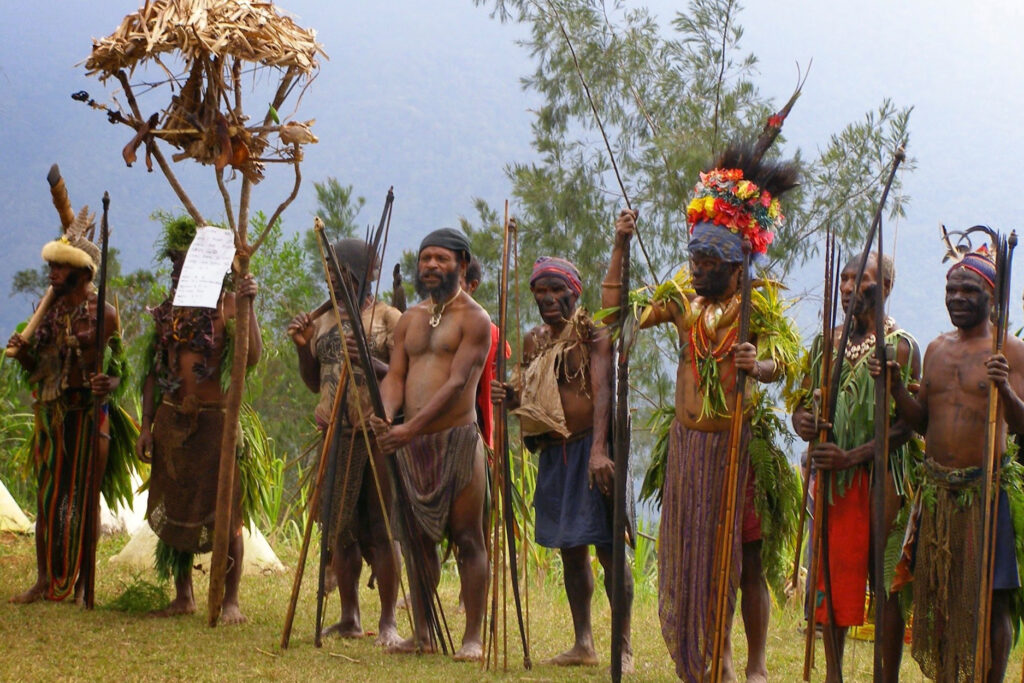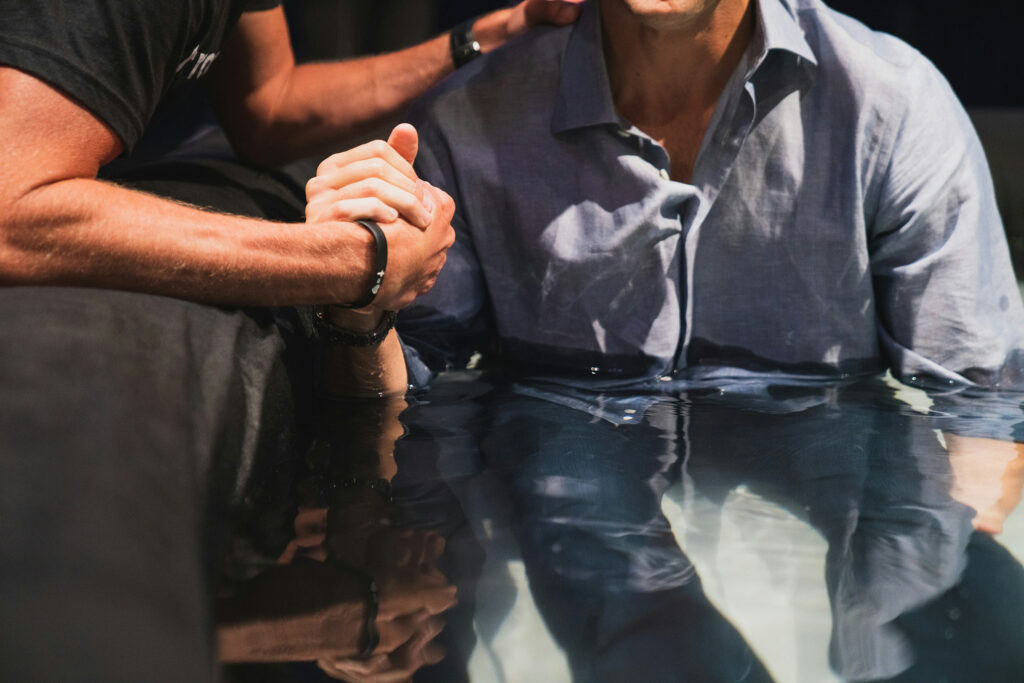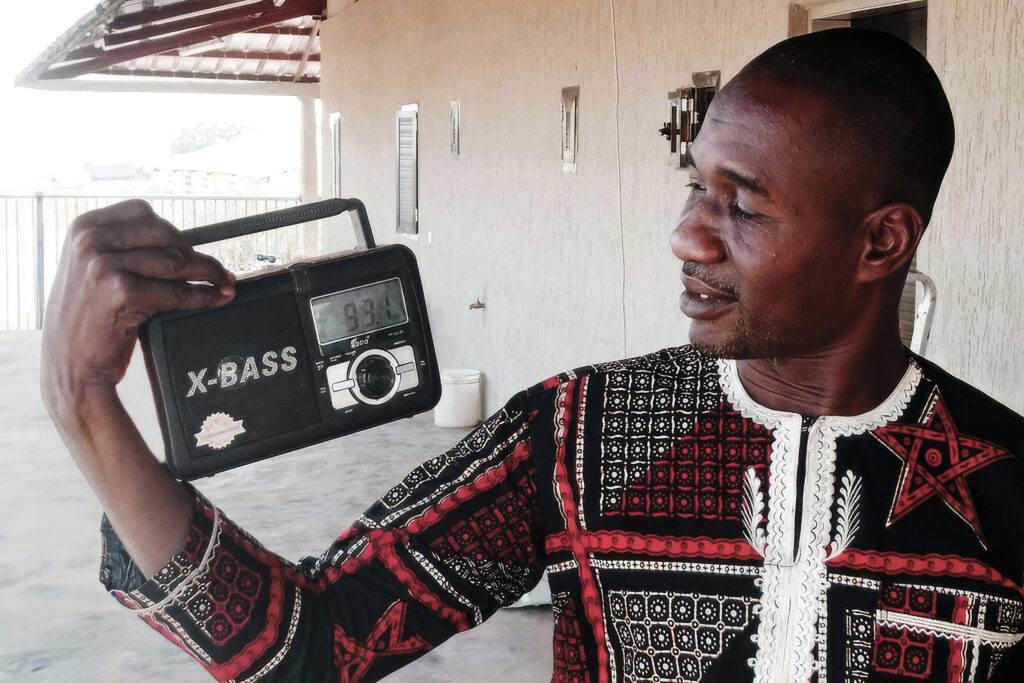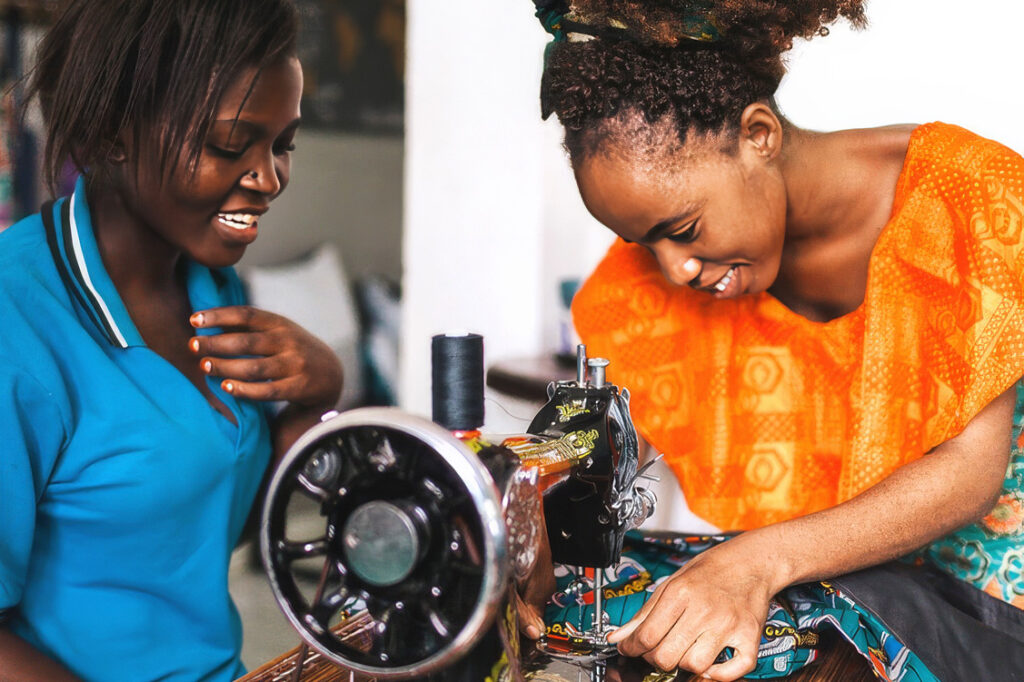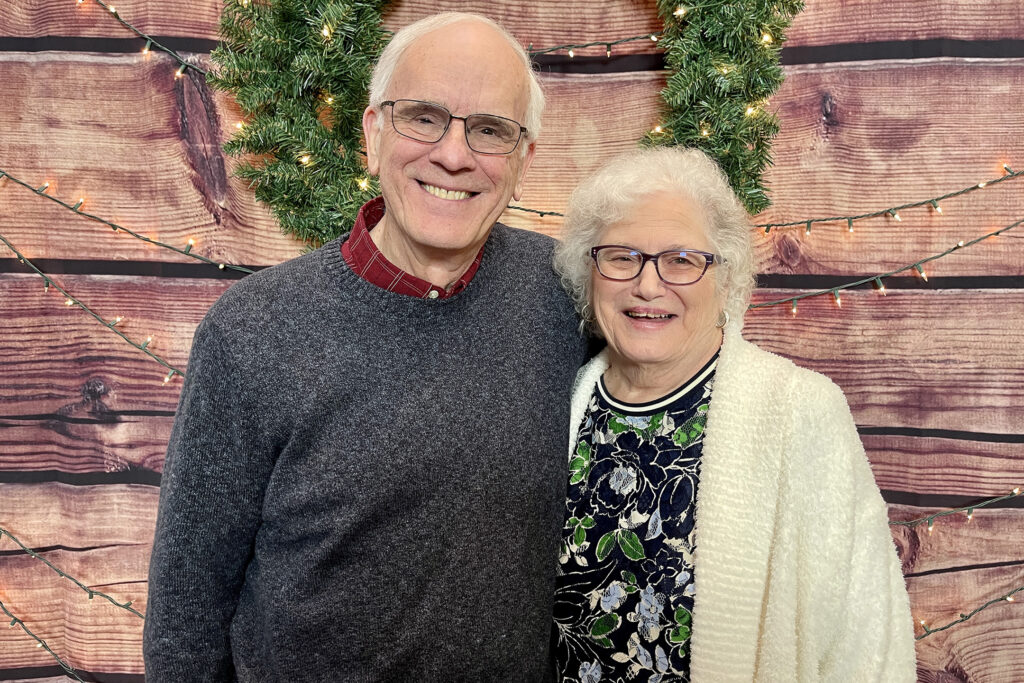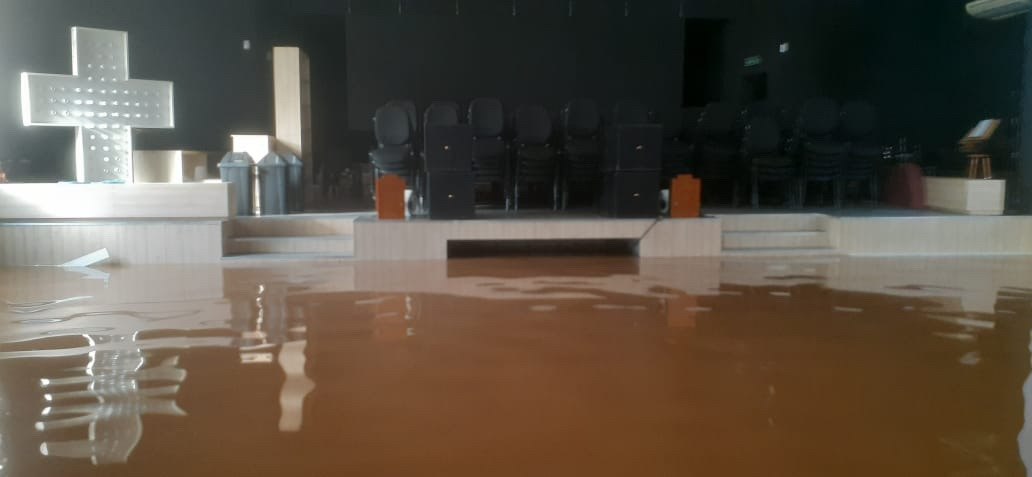Local reports had warned of criminal activity along the waterway.
The longboats sat low in the swift current, laden with rice and supplies purchased in the port city of Madang. For three of the men, the journey had begun days earlier. Benson and Simon John, both indigenous pastors, had set out from their villages in Simbai, a remote region perched high in the rugged mountains of north-central Papua New Guinea. Their isolated villages of woven-thatch huts offered no modern amenities. To purchase provisions for their families, the men had to trek out of the highlands.
Accompanied by Simon John’s son, they had descended 25 miles down steep mountain paths and crossed the cloud-covered valley to the Ramu River. They boarded a motorized dugout canoe to carry them through the tropical lowlands to the larger town of Usino Bundi. Their trek continued over another mountain chain before emerging onto the road, where, with other travelers, they hailed a truck fitted for passengers to carry them into the bustling town of Madang.
Their business in Madang complete, the three men had reversed course with their supplies. They were joined by Solomon, a faithful young believer from Simbai who had attended vocational school in Madang and was now employed as a mechanic.
Cognizant of the danger from gangs reported along the river, the men secured seats in a procession of five longboats and launched into the Ramu. Both pastors were anxious to return to their Simbai churches.
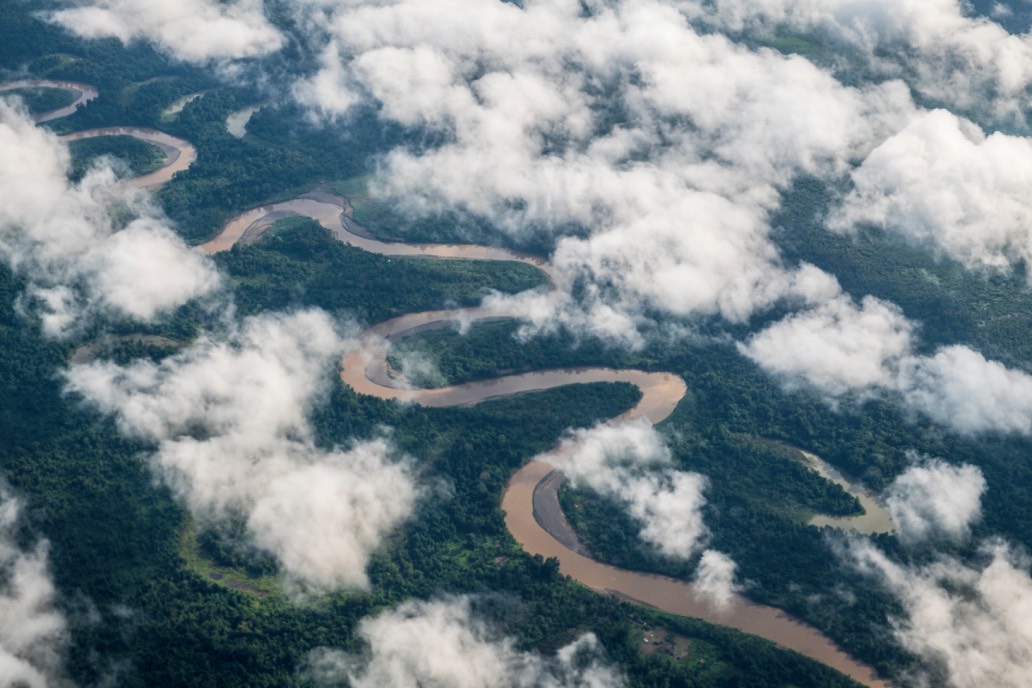
Photo: Getty Images
Doors Split Wide Open
The gospel first came to Simbai in 1983. “Long story short is that a rebellious teenager left home to find his fortune in Madang,” related veteran ABWE missionary Bill Tobias. “His friend took him to a Baptist church, and he got saved.”
Burdened for his people in Yomneki—a highland village so steeped in sorcery it was known as “the throne of Satan”—the young man searched Madang to find a missionary available to go to his village.
Finally, a missionary told him, “If you want your people to get saved, you need to go tell them yourself.”
The young man hesitated: “What do I tell them?”
The missionary replied, “Tell them what God did for you.”
At first, only a few people turned to Christ through the young man’s witness. His bold preaching drew the attention of the village witch doctor. Confronted with the gospel, the witch doctor—face colorfully painted and fiercely adorned in bones, feathers, and foliage—waged a spiritual battle within himself. The power of the gospel prevailed. Radically transformed, the witch doctor changed his name to Antipas, after the faithful witness in Revelation 2, and cast all his magic potions and amulets into the fire in a public denouncement of witchcraft. He stood before the village proclaiming that God is the true God and Jesus is the only way of salvation.
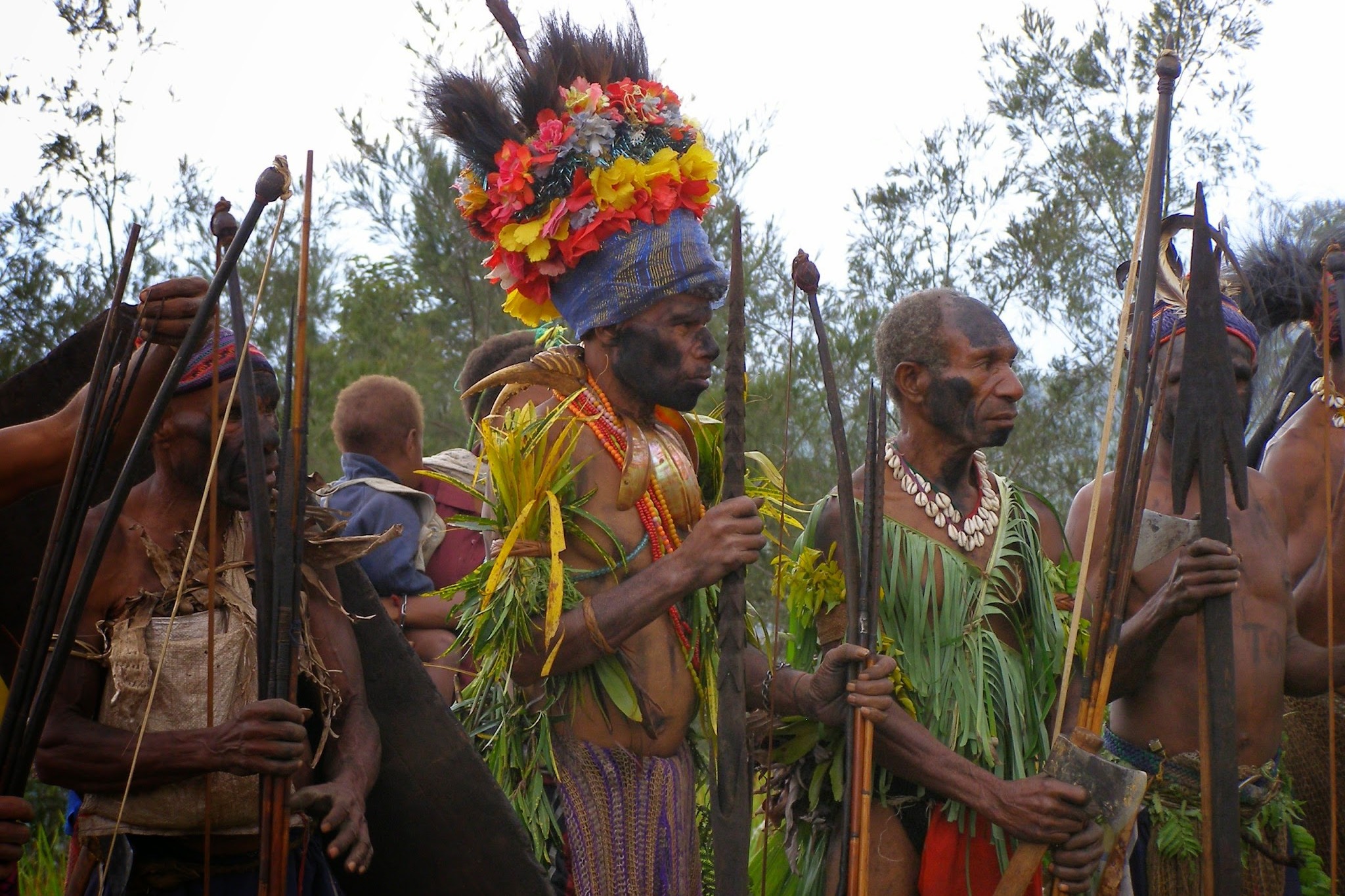
Photo: Steve Mayo
“When he made that declaration, the Lord just split the doors wide open,” Bill recalled.
Families in Yomneki turned to Christ en masse. The new believers gathered for church services, patterning their meetings after the examples they had observed on trips into town. They named their congregation Kalvari (Calvary) Baptist and began spreading their faith throughout the Simbai region. By 1987, these indigenous Christians had established churches in seven villages within a two-hour hiking radius of Yomneki.
Training the First Generation
“Two pivotal decisions were made in the early days,” explained ABWE Regional Director Steve Mayo. “To construct an airstrip on the side of the mountain so missionaries could get in, and to send their best young men to Goroka Baptist Bible College to be trained.”
Goroka Baptist Bible College (GBBC) had been established as an ABWE ministry in 1974. Located in the nation’s seventh largest town, 75 miles southeast of Simbai by air, GBBC was founded to strengthen local churches by providing theological education and ministry training for national pastors and lay leaders who would, in turn, equip others for gospel ministry. To date, GBBC has graduated 485 Christian leaders from every province in Papua New Guinea, including 30 from Simbai.
The first students from Simbai arrived with a request: they needed a missionary to help them reach the people groups in their remote region. Bill and Debbie Tobias answered their call. From his first survey trip to Simbai, Bill became a pastor to the pastors, leading, training, and discipling the nascent church.
“It was always national leadership, all lay pastors,” Bill said.
Over the next 30 years, Bill and Debbie established a mission base in Simbai station and from there led a fellowship of pastors throughout the region. The number of churches blossomed from seven to 36, each new church charted expectantly on a hand-drawn map. Bill developed a handbook to train pastors in the biblical requirements for the local church, teaching them to observe the ordinances of baptism and communion.
Benson became the pastor of a growing church in Miliki, a five-hour hike from Simbai station. After Bill taught his congregation to observe communion, he recruited Benson to help him train other churches in the ordinances.
“Benson was one of our faithful guys helping equip others in that ministry,” Bill recalled.
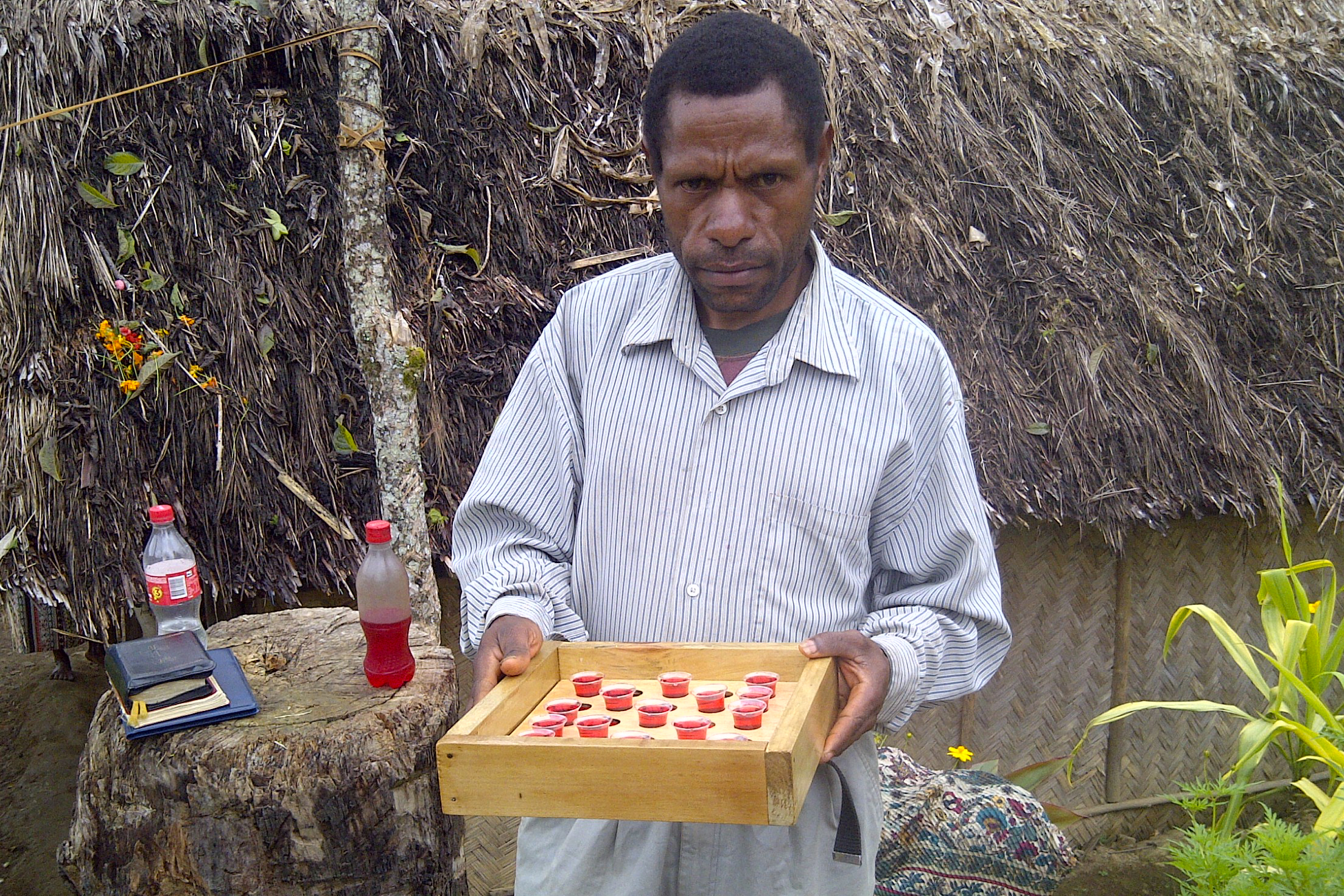
Pastor Benson leads communion in village churches. Photo: Bill Tobias
Simon John had been one of the first to trek out to Bible college at GBBC in the late 1980s. He faithfully pastored Immanuel Baptist Church—another of the original seven churches—for two decades until detouring into apostasy. The other Simbai pastors were forced to break fellowship with him in 2012. Nevertheless, they refused to give up on him.
Pastor Moses, and other pastors, met with Simon John for over 10 years, patiently explaining the error of his ways. Simon John finally surrendered to the Lord’s conviction in 2022. He humbly repented and recommitted to setting his life back on track. He needed to make a trip to Madang on business for his father, but when he returned to Simbai, he planned to make amends with the church and his fellow pastors and request to be restored to fellowship.
He never got the chance.
The Keys to Death
The convoy of longboats set off from Usino Bundi, the Ramu River already swollen and treacherous from the downpours of rainy season. Tropical birds took flight overhead as a crocodile slid from the grassy banks. The men continued downriver. In the swift current, the five longboats drifted further and further apart.
As the first longboat rounded a bend, they were confronted by another dugout traveling upstream. The criminals inside converged upon them. They leaped into the longboat, brandishing bush knives. Indiscriminately attacking the passengers, they robbed them, seizing phones, money, and provisions.
The second longboat sailed around the bend. Immediately seeing the attack, they attempted to pass on the other side of the river. Even the 100-yard width of the river was not enough. The criminals exchanged weapons and fired upon the boat. At the first explosion of gunfire, Simon John’s son dove into the muddy water, fighting under the current until he emerged out of range. In the vicious volley, one of the criminals aimed his shotgun at the back of the second boat and fired. Benson toppled into the water. One by one, longboat by longboat, the convoy rounded the corner, enduring brutal attack.
Their ambush complete, the criminals fled downriver. The stunned passengers looked around. Of the original group, over 25 were robbed. Many were injured. Seven were killed, including Simon John, Benson, and Solomon. Their work on earth finished, they had been ushered from their longboat into the glorious presence of the Living One, the Lamb once slain who holds the keys to death and to Hades.
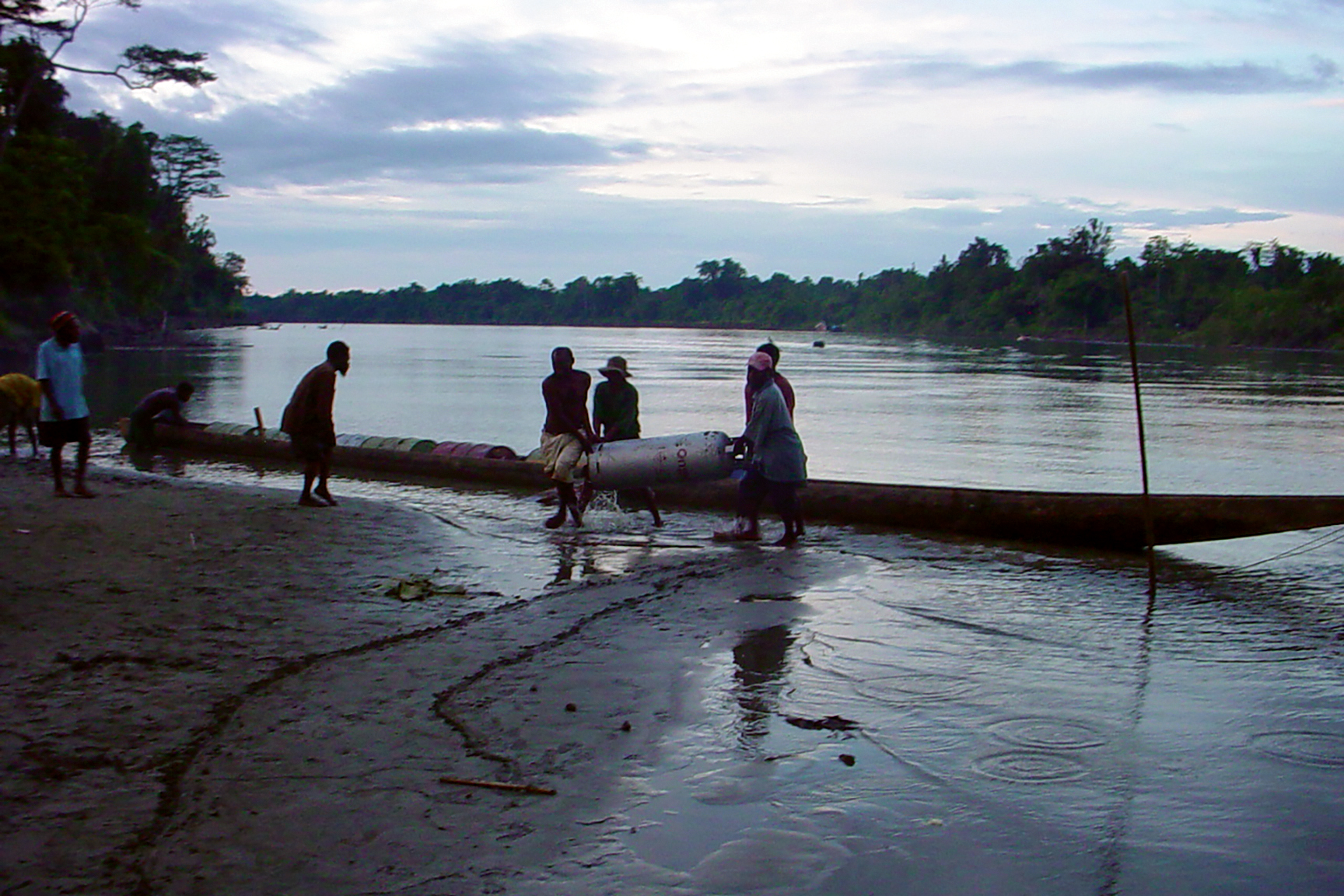
A longboat transports fuel along the Ramu River. Photo: Bill Tobias
Forgiveness or Retribution?
Word of the attack spread quickly back to Usino Bundi. Several within the large group of passengers had recognized the attackers. They reported their identities to the police, who, together with incensed villagers, pursued the criminals along the river. They discovered the canoe abandoned, still overflowing with stolen rice and provisions. The police tracked the criminals from the riverbank into the rainforest, capturing 12 and transferring them to prison to await trial.
That the criminals were arrested at all is unusual in Papua New Guinea. Robberies and murder, among a host of other crimes, occur frequently throughout the island nation. Legal justice is often bypassed for deeply-ingrained cultural traditions demanding unquestioning loyalty to one’s clan—the wantok system—and retribution.
The elaborate system of payback overarches Papua New Guinean culture, despite the diversity of the nation’s more than 800 language groups.
“The philosophy is that you don’t get angry, you don’t get even; you get ahead,” explained Bill. If a pig causes damage to someone’s property, the property owner may go to the pig owner’s land and cut down his banana trees. Then the pig owner’s family must retaliate for losing their trees, so they may burn down a house. The volley of payback can escalate rapidly to the point of murder, igniting tribal conflict.
The bereaved Simbai churches faced a choice. Would they pursue retribution or relinquish justice to God’s divine purview?
The village of Miliki assembled to discuss the matter. As Benson’s beloved family and congregation met in their grief, they recalled the hope and testimony of 1 Thessalonians 4. Although their physical bodies were dead, Benson, Simon John, and Solomon would be raised to eternal life in Christ. The Miliki believers agreed on a radical, counter-cultural course of action: they would forgive those who had taken the life of their pastor.
The Christians throughout Simbai publicly declared that they would not take revenge against the criminals. Rather, they were praying for the attackers to be saved.
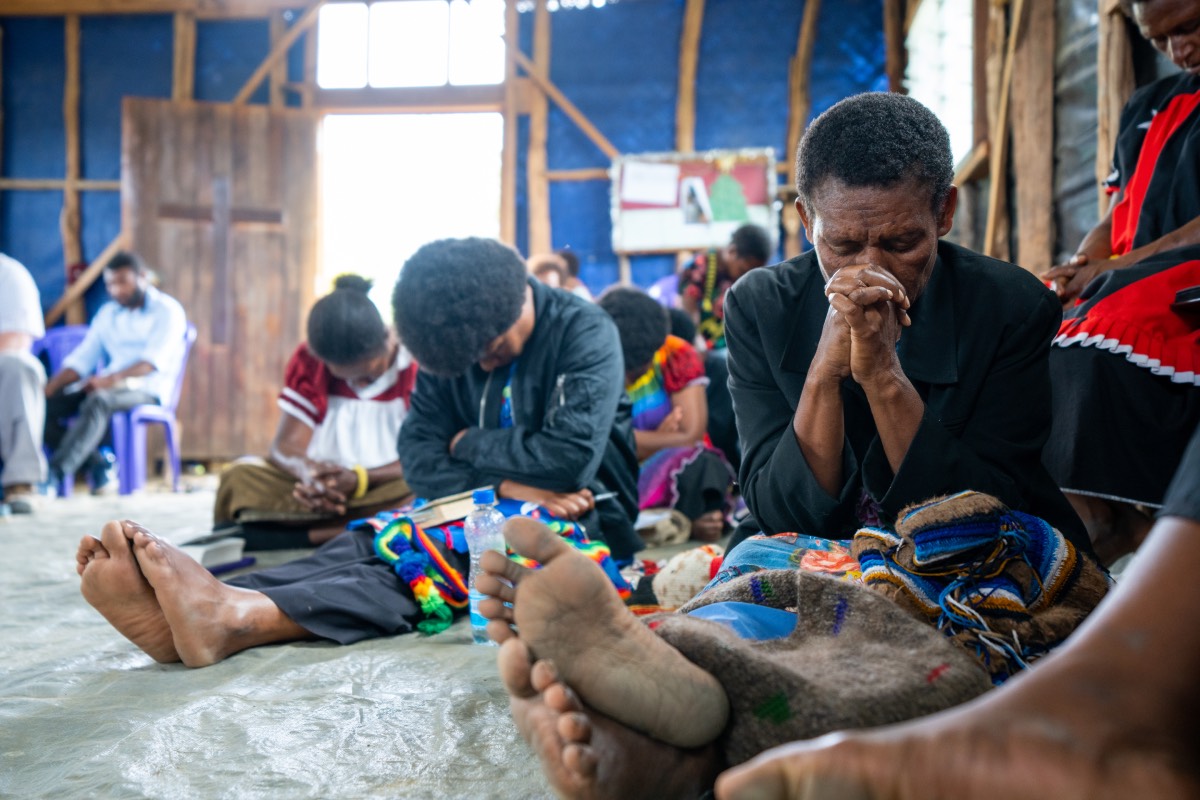
Papua New Guinean believers pray in Goroka. Photo: Jordan Timpy
A fellow believer from Usino Bundi took advantage of his role as a parliament member to publish a letter urging that when the criminals were prosecuted, they should not be given the death penalty. If the attackers were put to death, he reasoned, they may not have the opportunity to trust Christ as Savior.
“Our believers have suffered tragedy, but they are handling it with the right attitude. And God is blessing that,” conveyed Bill. “There’s a peace and harmony among the believers; there’s not the unrest that could go along with it. What becomes of that . . . we may not find out until we get to heaven. So we keep praying that these churches will continue to be faithful in the work they are doing.”
A Chain of Gospel Advance
Forty years after the gospel first arrived in Yomneki, breaking the bonds of animism and sorcery, indigenous believers have multiplied into 36 congregations throughout the Simbai region, representing a total of 1,500–1,800 indigenous people attending services each Sunday. Through their obedience to Christ, and the depth of discipleship they received at GBBC and from ABWE missionaries, the churches have grown to biblical maturity: teaching, discipling, observing the ordinances, exercising church discipline, and applying the gospel to forgive in the face of heart-rending tragedy.
“I often invoke Paul’s declaration in my own preaching,” said Steve Mayo. “‘The gospel . . . is the power of God for salvation to everyone who believes. . . .’ After going to Simbai, I now have a clear picture of what that means. We aspire to church planting movements, and in Simbai we witnessed church after church after church started in a chain of gospel advance.”
But their job is not finished. Bill Tobias estimates that only 10 to 20 percent of the greater Simbai region has been evangelized, a task complicated by the remote, difficult terrain and the diversity of local villages. To further equip the local church, GBBC has inaugurated a branch of the Bible college in Simbai, led entirely by national graduates of GBBC.
“Today, Simbai Baptist Bible Institute builds on the foundation they laid,” Steve continued. “[They are] training a new generation of evangelists and pastors who are courageously pushing the boundary of gospel advance farther into unreached tribes.”
“God is working. Yes, there have been difficulties, there has been crisis,” Bill reflected. “But God has promised to build his church, and he’s still doing that in Papua New Guinea.”
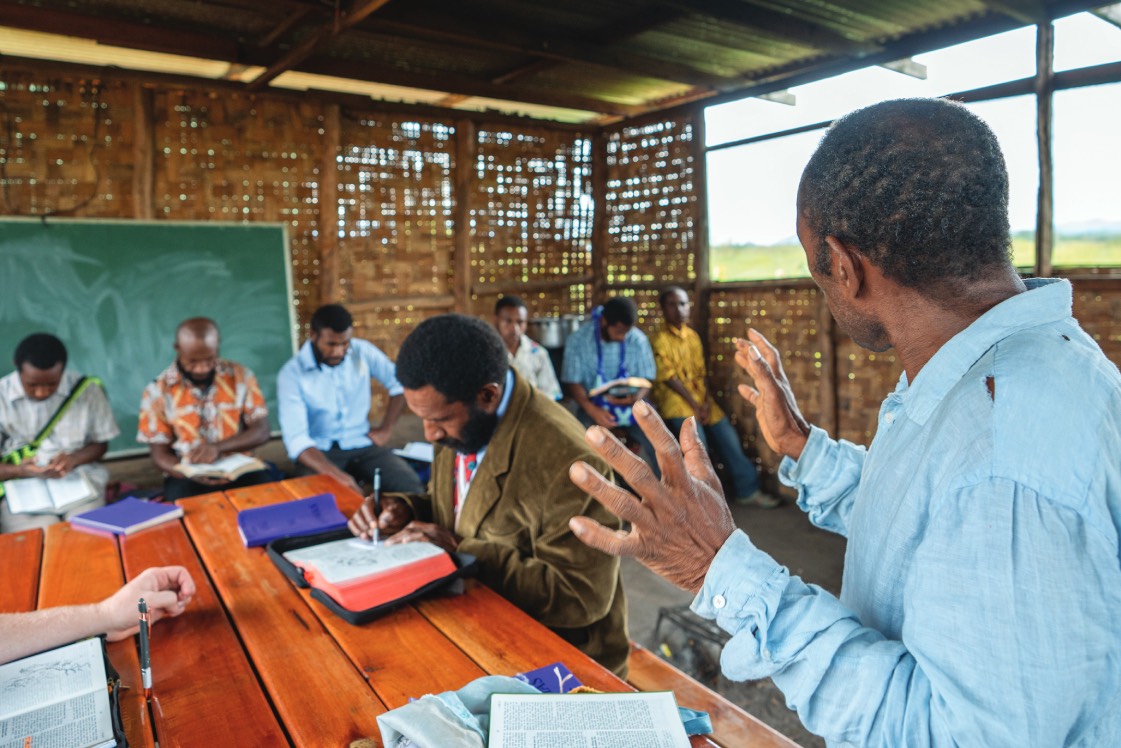
Goroka Baptist Bible College provides biblical education and training. Photo: Jordan Timpy
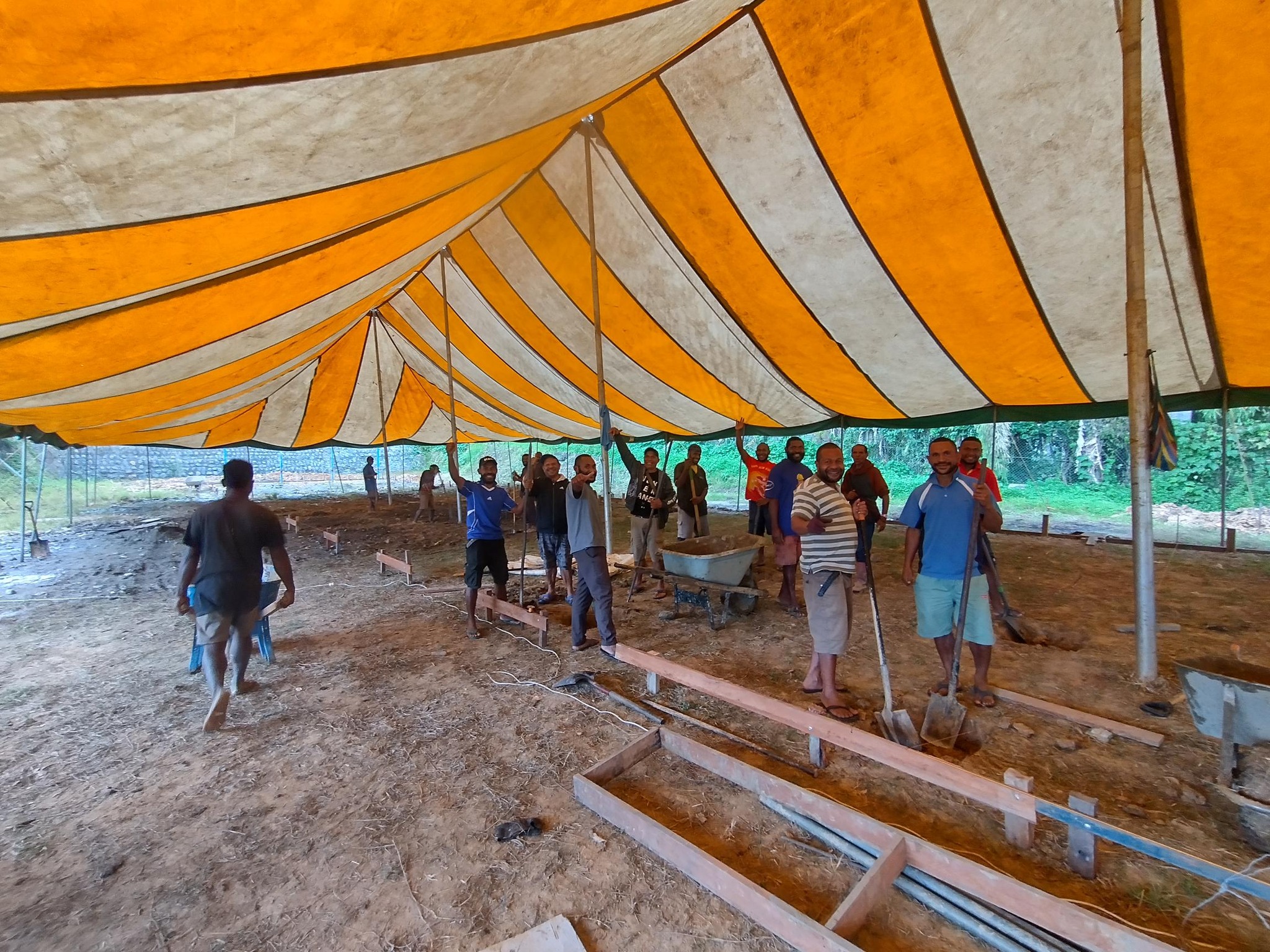
Goroka Baptist Bible College (GBBC) empowers the Papua New Guinean church to transform communities with the love of Christ. By providing biblical education and training, GBBC equips national church leaders to serve in all 22 provinces of the nation.
GBBC shares a campus with the Seigu Medical Clinic, which treats more than 20,000 patients annually and offers community health education. The clinic includes a pregnancy center focused on providing life-affirming, gospel-centered care.
To meet the increasing needs of their community, both GBBC and the Seigu Medical Clinic need to expand and renovate. The Goroka Project will provide the necessary facilities and infrastructure for both ministries to grow and impact a new generation of changed lives.
